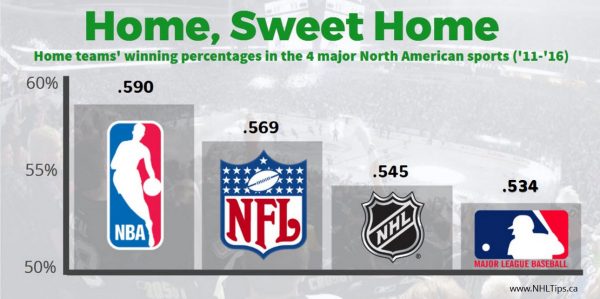But implied negativity here, not sure how otherwise one could read it.
Are they that similar for, .574 is 33% bigger than .432 has a number, a bit like calling 130 pts similar to 98 pts and once you consider you are fighting against your own excellence( the more you help your team score goals, the smaller your pts percentage become).
In that context, is 33% a giant amount, like a 150 pts vs 100 ? Not sure how to interpret it at all. What does having Jagr-Francis having one of the best even strenght offensive season of all time has your second line vs a regular mediocre top 6 should mean for your points total that year, in what way it make it less or more anything ?
To me that does not seem to hold up this simple test:
scoring change so much that it double, everyone score twice has many points.... both team goals as percentage of league and players points has percentage of team goals stay the same, yet scoring changed by a giant amount.
All the items you're pointing to are essentially randomness in a season-to-season sense. Let's go back to 2 of McDavid's seasons, 17-18 and 22-23, his age-21 and 26 seasons. He scored 108 points in the first, 153 points in the second. However, there's a few aspects of those seasons that are of note.
The first item is that the Oilers scored 187 even strength goals the first year, and 218 even strength goals the second year, yet according to h-r, McDavid was on-ice for 95 of them in each year. In fact, McDavid's even strength production was 35+49=84 in 17-18, and 39+36=75 in 22-23. His IPP dipped in the second year.
The power play is a whole other matter. Somehow McDavid was only on-ice for 22 power play goals in 17-18, of which he had 20 points. In 22-23, after they fixed the power play, that number jumped all the way to 87 goals, and McDavid had 71 points. His IPP dropped again, but the Oilers had a gigantic leap in their power play goals from 31 to 89.
Combined with a modest increase in short handed goals, the Oilers went from 229 goals in 17-18 to 325 goals in 22-23, and McDavid went from 108 to 153 points. However, 108/229=0.4716 and 153/325=0.4707. A massive amount of changes in McDavid's underlying numbers, nearly 100 more goals scored, identical P%. That's why I draw the opposite conclusion to your simple test. It simply does not matter what the scoring level is, on a percentage basis it does not change. That's why my Average VsX stat works so well, because converting to different scoring level scales to that extent.
Another way to think about it is in terms of games played. League average was 204 in 43-44, 203 in 58-59, and 211 in 03-04, and top 20 scorers were in broadly the same area, but per-game scoring levels were completely different because they played 50 games in 43-44, 70 games in 58-59 and 82 games in 03-04. A more extreme example would be the league average of 95 in 1921-22 compared to 316 in 1983-84. They only played 24 games in 21-22 versus the 80 in 83-84, but the per-82 average was virtually the same for both seasons, 324-325ish. The PPG numbers for the top 5 scorers in 21-22 extrapolate out to the same total points as the top scorers (apart from Gretzky) in 83-84, had they played 80 games instead of 24.
If league average is, to pick a number at random, 246 in an 82 game season, it's 300 in a 100 game season. You give the players of today 20 extra games to play, to reach the same scoring levels as the 80s, and the point totals start to become the same. How each player reaches that number is up to their talent, randomness, and variance. Returning to the McDavid/Lemieux peak comparison, what if instead of 384 games played over 5 seasons, McDavid had played 500 - 100 per year. To do some quick math, 1162 league average/384 games equals ~3.02/game, times 500 games equals a new league average of 1513. In that environment, the Oilers would have scored 1629 goals, and McDavid would have points on 788 of those.
| Total | Player | Team | LA | Player | Player |
| GP | GP | GF | GF | Points | P% |
| 384 | 378 | 1251 | 1162 | 605 | 0.484 |
| 404 | 378 | 1626 | 1410 | 791 | 0.486 |
| 500 | 492 | 1629 | 1513 | 788 | 0.484 |
A team GF gap of 375 and point gap of 186 disappears with the addition of 116 more games.

